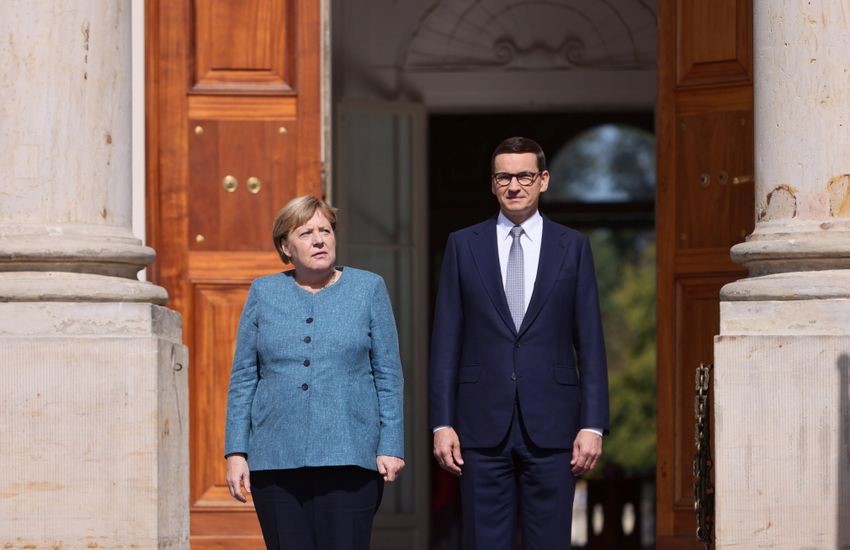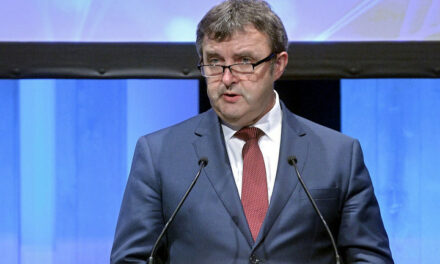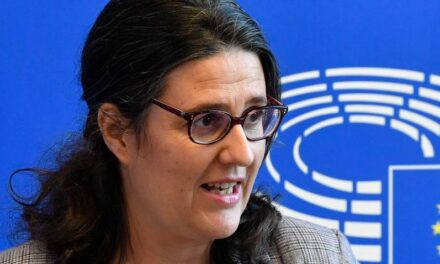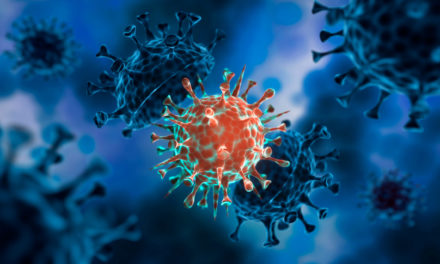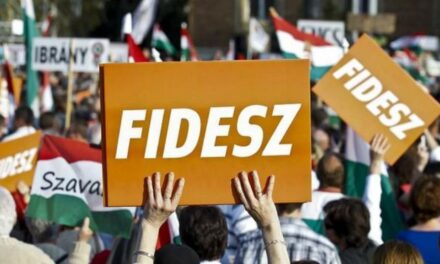Angela Merkel's farewell tour, which has been going on for weeks, has reached its next stop. After Washington, Moscow and Kiev, the German chancellor also visited Warsaw on Saturday. The outgoing German Prime Minister was received in the Polish capital by Prime Minister Mateusz Morawiecki after President Andrzej Duda canceled the meeting. The circumstances of the visit clearly reflect the fact that Polish-German relations are in a state of crisis.
Although the trade relationship between Germany and Poland still flourishes, the two neighboring countries are politically isolated from each other.
According to the original plans, in addition to Mateusz Morawiecki, German Chancellor Andrzej Duda would have received the meeting, but the right-wing Polish president canceled the meeting.
According to the official reason, the head of state visited Katowice in Upper Silesia during Merkel's stay in Poland , while the Polish media, citing diplomatic sources, reported that the president was actually avoiding the meeting for another reason. The news of Andrzej Duda's trip to Katowice came to light after the Russian gas company Gazprom announced on Friday that the construction of Nord Stream 2 has been completed and is expected to start operating this year. The gas pipeline linking Russia to Germany has been criticized by the United States and several European countries, including Poland and Ukraine, which fear that Nord Stream 2 will leave the EU vulnerable to Russian energy.
Relations between the two countries began to sour in 2015, when the conservative-right-wing Law and Justice (PiS) party took control in Poland. And the situation of the bilateral relationship is further aggravated by the fact that Brussels - with Germany at the forefront - has been engaged in more and more disputes with Poland and Hungary in the recent period.
In addition, the issue of migration between Warsaw and Berlin is also a sensitive topic, which was also discussed at the meeting of the heads of government.
Warsaw and the governments of the Baltic states accuse the Minsk leadership of transporting migrants from Middle Eastern countries to Belarus and then transporting them to the borders of neighboring countries. However, Angela Merkel's statement revealed that the German chancellor's attention is less bound by the protection of borders and the safety of EU citizens than the fate of immigrants from the Middle East and Afghanistan.
"These people, who Minsk uses as a tool for applying pressure, need help and protection," emphasized the mother of Willkommenskultur at the press conference held after the bilateral meeting.
Although there are only two weeks until the German parliamentary elections, Angela Merkel is trying to stay in the center of attention until the last moment: she will continue her trip to Serbia, Albania and France next week.
a full article about yesterday's visit in Magyar Nemzet .

